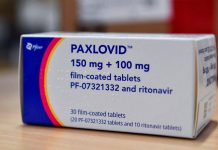A new study has shown that switching between generic levothyroxine products does not affect serum thyrotropin (TSH) levels or make much of a clinical difference, according to MedPage Today.
The study, published in JAMA Internal Medicine, looked at nearly 15,830 patients and found that those who switched between generic levothyroxine products did not have any change in TSH levels than those who continued taking the same product.
Dr. Juan Brito of the Mayo Clinic in Rochester, Minnesota, and his team said, “Generic levothyroxine preparations are less expensive and have been rated by the FDA as bioequivalent to their brand name reference-listed drugs. However, generic levothyroxine has been less widely prescribed than other generic pharmaceutical products.”
“One potential reason for this may be the lingering concerns about an association between switching levothyroxine products sourced from different manufacturers and the stability of thyroid hormone levels,” they added.
The team explained, “When clinicians prescribe a particular brand name product (indicating dispense as written), that specific product is dispensed to a patient for the duration of the prescription. In contrast, when clinicians prescribe generic levothyroxine, pharmacists can substitute a variety of generic levothyroxine preparations made by different manufacturers (e.g., Mylan, Sandoz, or Lannett) without requiring clinician notification or approval.”
They noted that this sparked concerns in the field to an extent where the American Thyroid Association’s 2014 clinical guidelines specifically recommended against levothyroxine switching from different manufacturers due to concerns of bioequivalence, per MedPage Today.
Dr. Brito and his team said, “Given these concerns, it is important to understand the implications of switching among different generic levothyroxine products for TSH levels.”
Of all the participants, more than 82% continued taking the same product, while over 17% switched between generic levothyroxine products. The researchers studied those patients to measure the implications of switching products.
Dr. Brito’s group said switching among generic products is unlikely to bear any substantial impact.
They also said the findings may help “curtail the relative underuse of generic levothyroxine in the U.S. because one of the main concerns of prescribing generic levothyroxine is the lack of control over switching among different generic products.”
From 2007 to 2016, roughly 75% of thyroid hormone prescriptions were for generic levothyroxine versus 97% of other drugs that had both brand-name and generic alternatives available. The investigators said, “The underuse of generic levothyroxine has considerable financial implications for patients and health care systems.”























